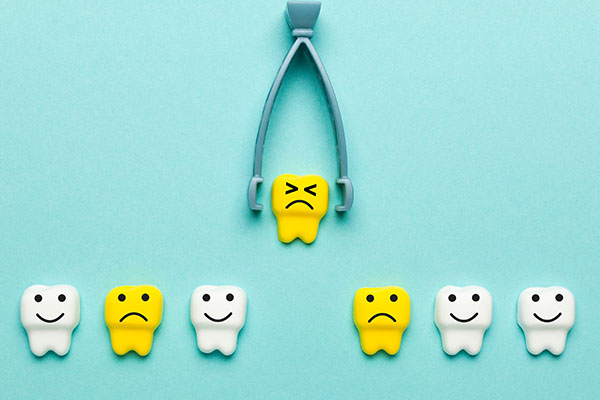Anti-Inflammatory Medication To Treat Tooth Pain

The first thing that goes through most people's minds when tooth pain occurs is finding a way to make it stop. Toothaches are an indication that a trip to a dentist is in order. At times, the pain and discomfort caused by a toothache are so severe that it requires an emergency trip to the dentist.
Treatment of tooth pain with medication
Milder toothaches can typically be managed with pain relievers and a variety of products that are designed for tooth discomfort. Common causes of toothaches include:
- Cavities and tooth decay
- Infection or abscess
- Sinus pressure caused by mucus accumulation
- Gum disease
Depending on the patient's symptoms, over-the-counter pain relievers and anti-inflammatory medication may be effective. There are also stronger drugs that can be prescribed by a dentist to help manage the pain caused by toothaches. Here are some popular medications used to address painful tooth problems:
Benzocaine
This is used to temporarily soothe and relieve the pain caused by a toothache. It is a topical anesthetic that is rubbed on the affected tooth to numb the nerves and decrease the discomfort and pain. Benzocaine has been around for quite some time and is safe for adults. However, it is not safe for children under the age of two according to the guidelines of the American Dental Association.
Nonsteroidal anti-inflammatory drugs
NSAIDs help alleviate the inflammation that occurs with toothaches and reduce the pain and discomfort. These drugs are particularly effective if the patient is dealing with an issue like an abscess, gingivitis or sinusitis. Examples of easily accessible NSAIDs include naproxen, aspirin and ibuprofen. Patients are advised not to take such drugs for more than 10 consecutive days without first consulting a doctor
Acetaminophen
This is another drug that is often used to treat toothaches. Like NSAIDs, acetaminophen also has pain-reducing properties. However, it does not diminish inflammation. Instead, it serves as a fever reducer. It can be effectively used to defend against toothaches caused by cavities and infections.
Anti-inflammatory home remedies for toothaches
Over the years, people have developed some simple methods that generally reduce the swelling associated with tooth pain. Many of these home remedies can be combined with medication for a more complete solution:
Cold compress
This can be used to reduce any swelling that occurs as the result of a toothache. The patient simply applies a cold compress to the side of the face radiating the pain and keeps it there for 15 minutes.
Clove oil
Apply this traditional home remedy directly to the affected tooth. It numbs the area in a way similar to benzocaine.
Hot shower
Addressing a sinus infection may also provide relief from accompanying tooth pain. A hot shower can often help clear up the sinus if the patient's toothache is caused by blocked airways.
Dental treatment for tooth pain
Most medications and home remedies may only provide temporary relief from tooth pain. For a permanent diagnosis and treatment, make an appointment with a local dental clinic. A professional dentist can find the underlying cause of the problem and come up with a treatment plan to address the pain.
Request an appointment here: https://www.diamondheaddentalcare.com or call Diamond Head Dental Care at (808) 450-2101 for an appointment in our Honolulu office.
Check out what others are saying about our dental services on Yelp: Helpful Dental Information in Honolulu, HI.
Recent Posts
Most people grow up believing certain myths about dental checkups. Online information can also be misleading when it comes to dental healthcare. As innovations in dental health continue to surface, most of these falsities are debunked. Below are some of the common dental checkup myths and the truth behind each of them.Fact: Firm or medium-bristled…
Every six months, you should have a dental checkup. During each visit, a hygienist cleans the patient’s teeth. Then, a dentist looks for any potential or existing problems. The main goal is to correct an issue before it worsens. That way, you enjoy healthy teeth and gums from one appointment to the next. Keep reading…
There are many reasons you should have a dental checkup, but it is not uncommon to have a fear of the dentist. The gums, teeth, and tongue all play a significant role in helping you have a nutritious diet. When these do not work well, you may not be able to eat the right foods.…
Patients might not always get the most out of a regular dental checkup. But asking some questions during that time can help patients gain more information on different topics. The dentist has experience and knowledge in many areas. Continue reading to learn a few things to ask the dentist.One reason for having a dental checkup…


